updates
Yiannis Paraskevopoulos
From Romania to South Korea
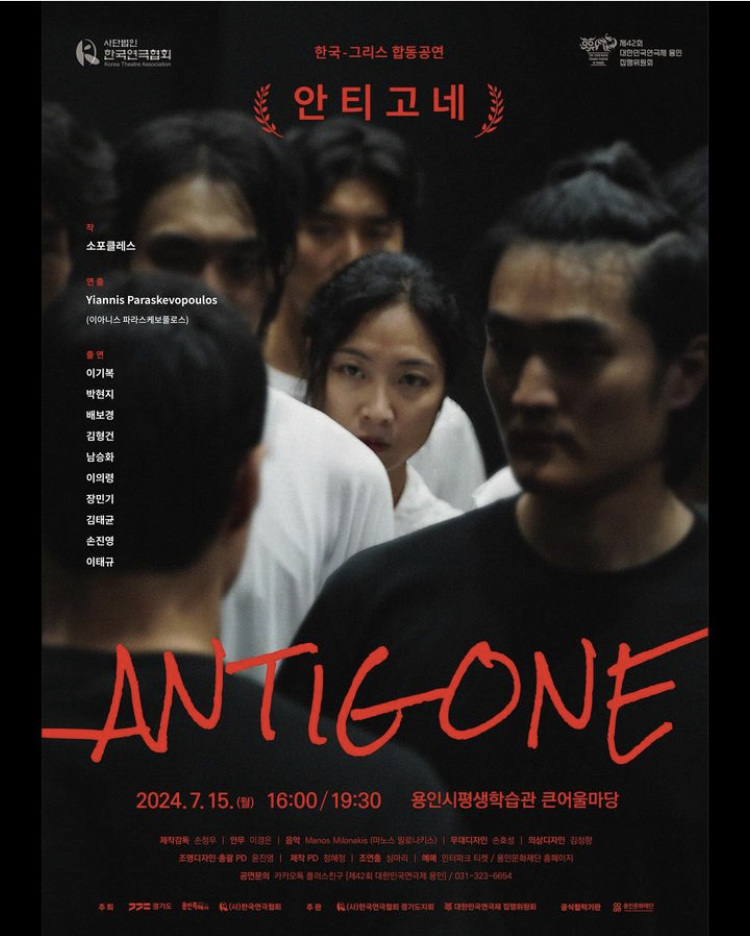
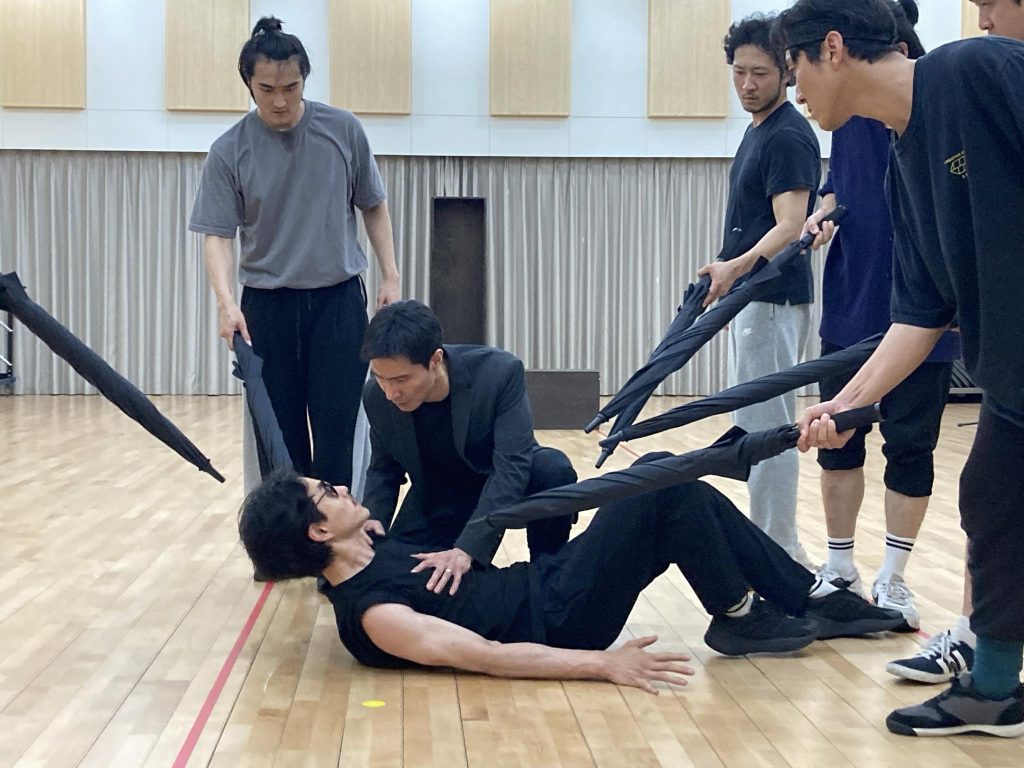
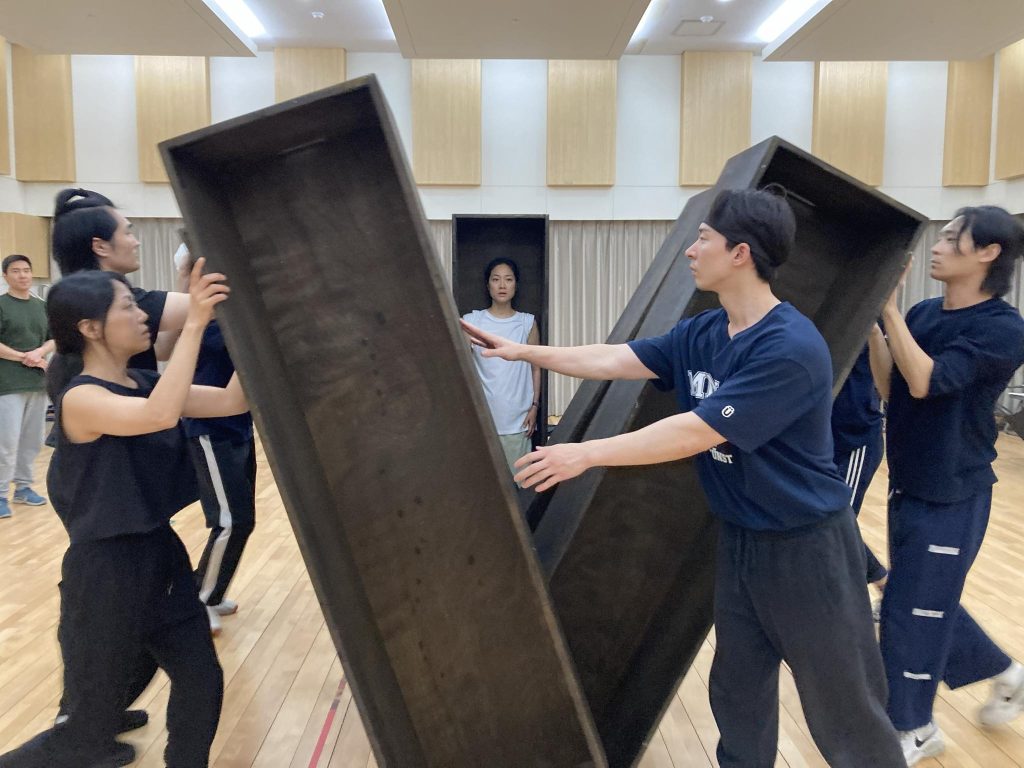
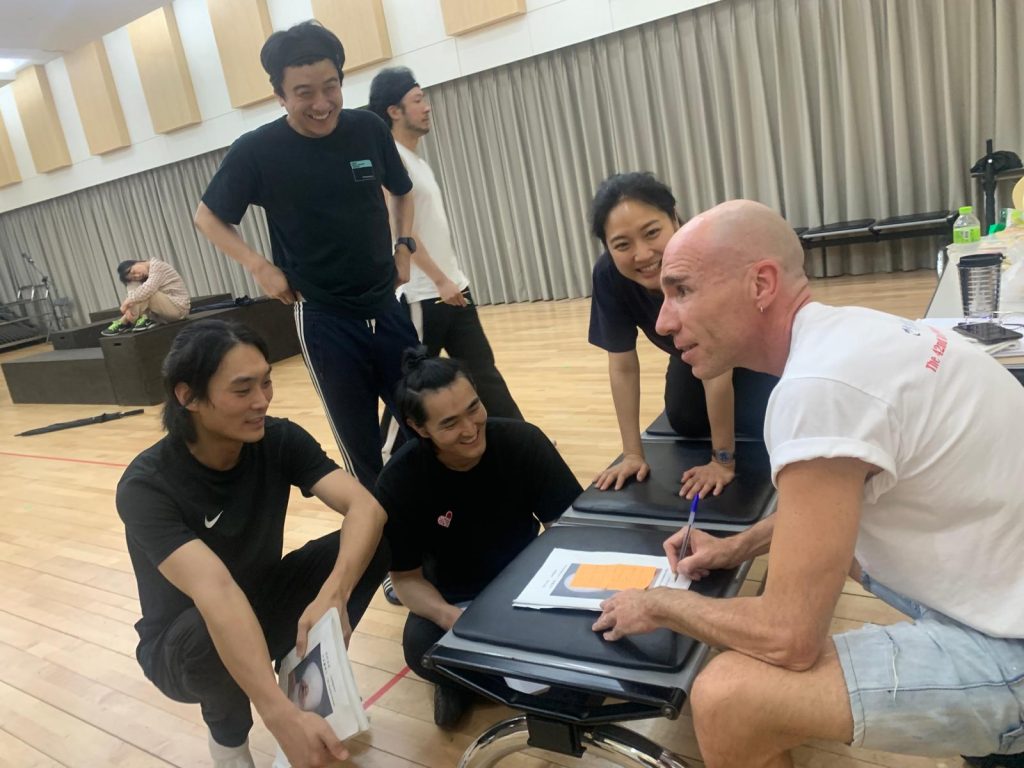
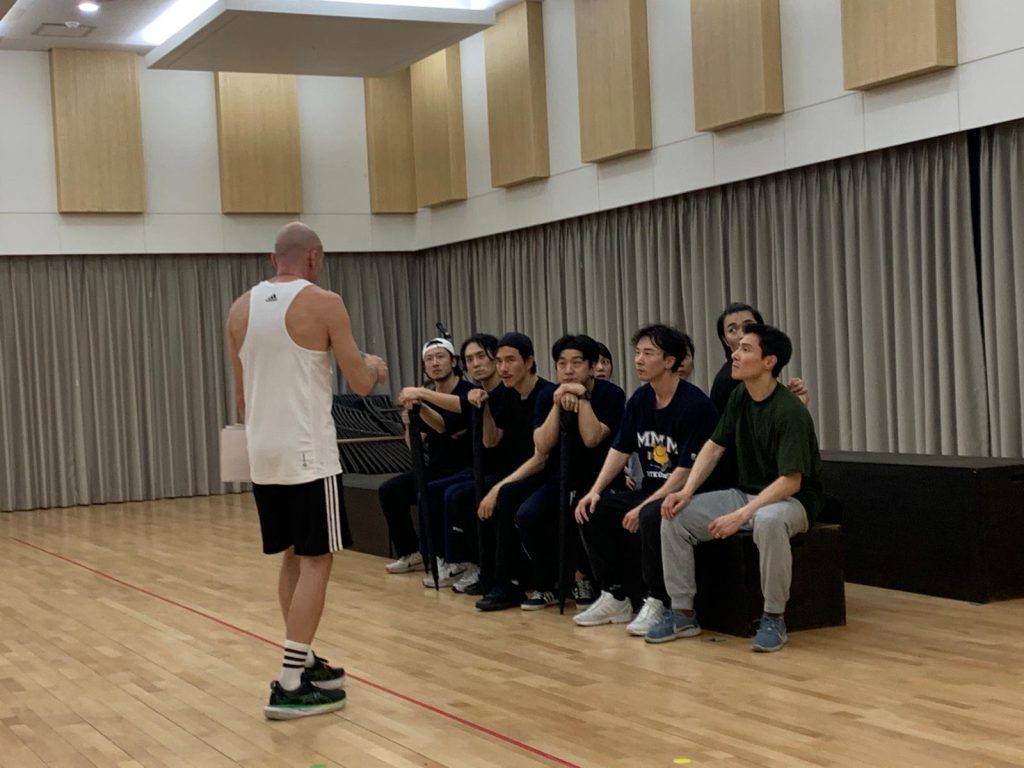
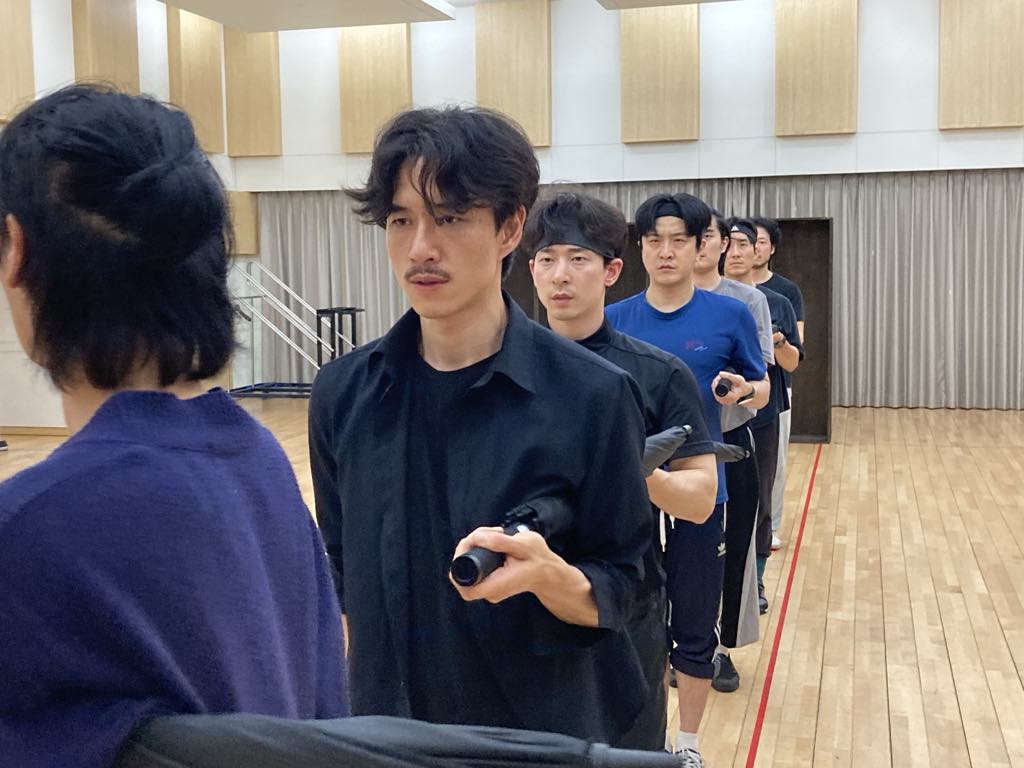
Sophocles’ Antigone, directed by Yiannis Paraskevopoulos and scored by Manos Milonakis, was staged at this year’s 42nd Korea Drama Festival, hosted every year in a different city of South Korea. It is worth mentioning at this point that both nights the show was sold out, as a thousand tickets had been booked many days in advance.
During the preparations for the staging of the play in Yongin, a city not far from Seoul, Yiannis Paraskevopoulos found himself speaking in English, thinking in Greek and listening others speak in Korean, a situation that no matter how complex it may seem was finally resolved through the truly universal language of emotion.
Sophocles’ Antigone is no stranger to the Korean audience. “They show a keen interest in ancient tragedy, but Antigone is by far their favorite play,” he explains. All ancient tragedies staged so far in South Korea lacked the element of the typical chorus found in ancient drama. Therefore, the chorus approach adopted by Yiannis Paraskevopoulos paved new ways for the Korean audience. In particular, all cast members are part of the chorus, a trait that defines each character of the play.
Through videos he received and studied while still in Greece, but also during the four-week rehearsal period in South Korea, the director selected the ten actors, two women and eight men, that compose the cast. The play was translated from Greek to English and from English
to Korean: “We keep making corrections”, adds the director, as after the first intensive rehearsals he began to get a sense of the Korean language and to seek improvements in the text. “You keep hearing the same text over and over again, so you are in the position to make comparisons and intervene when for example some part seems too wordy,” he goes on to say.
Cultural differences, such as the fact that people are hesitant to touch one another in South Korea, were issues that he had to approach and cope with from the early beginning. “I did not come here to impose anything, I just wanted to communicate my own perception of the play and come into contact with a different mentality.” The final outcome left Yiannis Paraskevopoulos thrilled. “Antigone is a play we have been acquainted with since our school years, that’s why I did not expect to feel so moved. However, I was touched both by the staging of the play and the heartfelt performances of the actors,” he comments, describing the Korean people as kind and hard-working.
“All actors, regardless of their country of origin, give their better selves wholeheartedly when they see a director who cares for them and trusts them. If the director chooses to stand before them from a vantage point, actors will naturally keep a distance as well.” The actor portraying Creon stands out according to Yiannis Paraskevopoulos, who would even consider inviting him to Greece to take on the same role as part of a Greek cast.
Yiannis Paraskevopoulos, with nearly twenty years of theater productions in Romania, dozens of plays staged in several other countries, as well as the recent experience of South Korea, under his belt, is now convinced that there are no insurmountable internal or external borders. As for the cultural and linguistic particularities he was faced up against while staging Antigone, he points out that they triggered an inner growth.
“Once rehearsals kick off, you are forced to break down a communication barrier. And to achieve this, you need to overcome the limitations of yourself.” The first spark for Antigone’s journey to South Korea was sparked following the staging of Euripides’ Orestes at Romania’s Tony Bulandra theater, thanks to a persistent producer who spoke her mind and insisted that Yiannis Paraskevopoulos should showcase his take on Antigone at the Korea Drama Festival.
In summer 2024, in addition to Antigone traveling to South Korea, Orestes will be staged in Cyprus, while 2024-25 season will mark the return of Thanasis Triaridis’ The Washing Machine in Thessaloniki, starring Eleni Dimopoulou and Magdalini Bekri.
